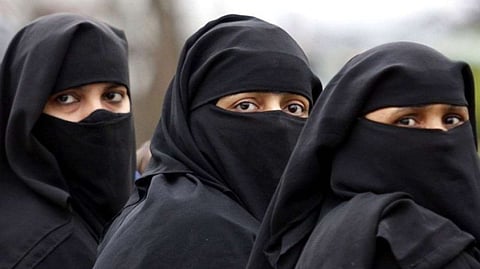Sri Lanka bans niqab in public places
Visitors, residents in Sri Lanka are not allowed to cover their face in public

Also In This Package
Dubai: The government of Sri Lanka has banned all kinds of clothing that covers people’s identity, including the niqab and burqa.
The temporary measure, which came into effect on Monday, was implemented on week after the deadly Easter Sunday attack that killed more than 250 people, including 40 foreign nationals.
According to the new ban, which was issued by the presidential office, people will no longer be allowed to use any item that covers their face or conceals their identity.
Sri Lankan President Maithripala Sirisena also took to Twitter to make the announcement.
In the Sinhala language, President Sirisena said: “It is prohibited to use all kinds of face masks which will hinder the identity of the people in the country, who [will be seen as a] threat to national and public security. The ban will come into immediate effect tomorrow (29.04.2019).”
While the majority of residents are Buddhist, around 70 percent, Muslims make up about 10 percent of the 21 million population. Christians and Hindus make up 7 and 13 percent of the population respectively, according to the New York Times.
The All Ceylon Jamiyyathul Ulama (ACJU), the organisation of Muslim clerics in Sri Lanka, had earlier requested Muslim women not to hinder the efforts of security forces who are responsible in maintaining national security, and urged women not wear the niqab.
In a statement on Thursday, the ACJU said: "In particular, we strongly appeal to our sisters to be mindful of the critical emergency situation now prevalent in our country and the difficulties faced by the security officers in performing their functions in situations where the identity of a person cannot be ascertained."




